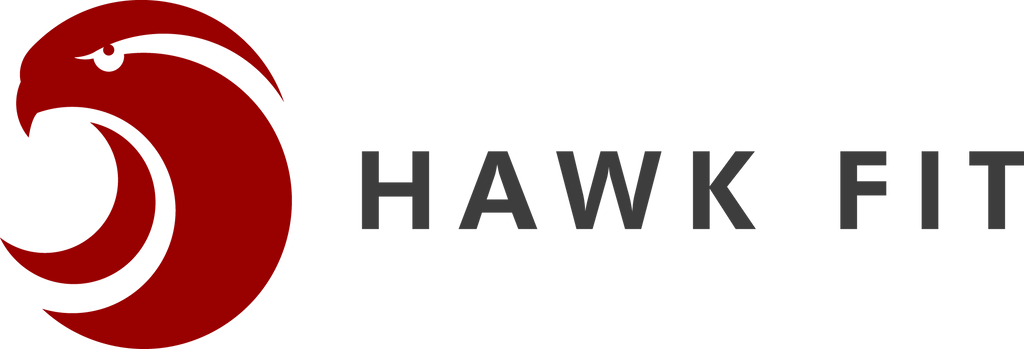Before we delve into what a proper peak week SHOULD accomplish, let’s look at what it actually is.

Think of ‘peaking’ like icing on a cake. It makes a significant difference visually… and although it CAN make a difference visually, it won’t change the basic ‘cake’ component (flavor, moisture, texture). The work needs to be done before you get to peak week. If you’re placing all your eggs in one basket expecting some sort of extraordinary overnight progress to occur..eh.. sorry, but that’s not how this works. If you’re not lean enough, you’re not lean enough and sometimes that’s a hard pill to swallow… but you could potentially use that as an opportunity to pick another show and improve!
WHAT PEAK WEEK IS/ISN’T FOR:
1. LOSING MORE BODY FAT
Most competitors incorrectly assume that contest peak week is a last-ditch effort to lose as much body fat as possible before taking the stage. It cannot be stressed enough that you should be “stage lean” at least ~4 weeks before to peak week. If you find not lean enough going into peak week, you are better off bypassing the peaking objectives covered here and just using that as an opportunity to extend your prep. Ideally, if you aren’t lean enough, the best option is to aim for a future show, so you have the necessary time to diet appropriately. Contest peak week is not a magical time frame by any means; if you’re not lean enough going into peak week, no amount of nutrient/salt manipulation is going to make you appear leaner on stage than competitors who are leaner.
2. ‘SHEDDING’ WATER WEIGHT
Many competitors and contest prep coaches state that the primary reason for a “missed peak” stems from holding excessive water. Given that humans are mainly comprised of water (upwards of ~70%), it doesn’t require much brainpower to arrive at such a conclusion. Nevertheless, the idea that cutting water during contest peak week is the main objective couldn’t be further from the truth. We will get more in-depth with water intake, but for now, it’s important to note that reducing total body water content is not an objective of peak week.
3. ‘THINNING’ YOUR SKIN
There’s a longstanding misconception in bodybuilding that certain foods ‘thin’ the skin (e.g. fish usually tilapia and cod). This is silly and has no basis in how your body/skin functions physiologically. If you want your skin to appear “thinner,” you simply need to be leaner (e.g. have less body fat). Don’t buy into the idea that eating fish, or using a certain topical product will magically make your skin thin. It’s sad that this is the level of understanding some people have about how their body works.
4. STRESSING OUT
The goal should be to actually minimize stress as much as possible. Keep stress low, & decrease the psychological stressors. This is going to help manage cortisol, which can contribute to the cosmetic look on show day. When stress is high there’s an increase of cortisol which leads to a cascade of things to occur: Being in an overdriven sympathetic state (‘fight’ or ‘flight’ state) and not parasympathetic state (‘rest’ and ‘digest’) can impact your bodies ability to retain more water, digest and assimilate nutrients, and this could potentially impact your sleep, which is something you want to prioritize during peak week.

5. RESTRICTING WATER
The old wives' tale of ‘cutting’ water during peak week is a very common one to hear when talking to your average bodybuilder. Unfortunately, as previously touched on above, this is so far from the truth for a natural competitor. The main goal should be to prioritize fluid and electrolyte balance. When you cut water, you’re fast-tracking screwing your peak up. You need water/sodium to help with absorption/facilitation/utilization of the carbohydrates you’re consuming and for that epic back-stage pump. You don't want to be flat and spilled over on stage.
6. SWITCH UP FOOD SELECTION
This one is always fun because you have ‘x’ competitor who’s been sticking to more/less the same food throughout their prep, typically foods that are hypoallergenic to the gut, unprocessed or minimally processed, foods their gut is familiar with and come show day they bombard their GI with highly processed foods/“cheat meals” which can contribute to bloating/issues w overall digestion. Ever heard of the saying ‘if it ain’t broken, don’t ‘fix’ it’? Well that applies perfectly to this scenario, we want to place our body in an ‘optimal’ position to destress and fully digest/assimilate all the carbs/nutrients we’re consuming— having your burger and fries before prejudging is counter-intuitive to this.
7. TRAIN SUPER HARD
No no no!! We want to prioritize and promote recovery. The goal should be to minimize actual muscle damage we induce via resistance training, heavy loading and an emphasis on eccentrics will contribute to this. This can lead to an increase in stress (cortisol which we just spoke about and how it can impact us visually), which can influence water retention.. AND if you trained hard enough to induce muscle damage, it can impact your ability to pose on stage. Peak week training should be aimed mores around concentric contractions (AMPK/metabolic type stimulus) and higher rep ranges, so that we’re able to deplete/maximize skeletal muscle glycogen stores.
8. DEPLETING/MAXIMIZING GLYCOGEN STORES
Our bodies store carbohydrates as glycogen in our skeletal muscle, liver, and brain. The depletion process (and final weeks leading up to peak week) should be aimed around improving insulin sensitivity therefore it can help upregulate our ability to store carbohydrates more efficiently. When we fully deplete both (skeletal and liver) stores, our body has a super compensatory effect by storing more glycogen when you consume a relatively large amount of carbohydrates after let’s say for example having only fibrous veggies/protein sources (which are taped down leading up to the show) for your depletion leading up to your carbohydrate load. Moreover, when we talk about maximizing processes like fat loss depleting glycogen stores is a great way to help ‘burn’ or oxidize the body fat stores are left— this is important when you’re trying to achieve elite levels of stage conditioning. You can’t be scared to run flat and dig.
9. PRACTICING POSING
This should honestly be common sense (but common sense wouldn’t be so common if everyone had it), and I understand how it can be confusing for a first-time competitor. What we really want to be doing is practicing our posing as frequently as possible. I could give you a basic response and tell you that you should just pose when you have time, but would you really do it consistently with the intent of getting better at it? If you want to improve on something, the more you practice it, the better you get at it. The reality is all our physiques are different too, so not only do we have to learn how to hit the poses for our specific class correctly, but we have to learn how to use the pose as a rough guideline for perfecting our own unique posing. This is the big artistic side of bodybuilding and frankly one of my favorite aspects to it all.
10. PROPER PREPARATION PREVENTS POOR PERFORMANCE
If you have a coach you need to ENSURE they don’t leave you high and dry come peak week. I usually like to give my clients their peak week programming 1 week, BEFORE we actually peak, so they have a chance to look over everything, get what they need to get, shop, and ask me any questions they have. I also like practicing a ‘mock’ peak with my clients, before peak week, but in some situations that doesn’t always happen. Prepare ahead of time, have your travel and hotel taken care of, show up to the venue beforehand for athlete check-ins and polygraphs, have all your food prepared, make sure your tan is booked or you have your product ready, you’re shaved, have your posing suit/trunks ready, and by taking care of these things it will indirectly help minimize stress and place you in an ideal position to nail your peak.
BONUS #PROTIP
11. AT THE END OF THE DAY IT’S NOT ABOUT A TROPHY

This is my trophy and unfortunately it broke the next day due to a friend dropping it, but it helped me realize something very important. Bodybuilding is a very OBJECTIVE sport and it’s very important to keep that in perspective despite winning or losing. You could win first at one show, compete a week later, and place dead last, it all depends on WHO shows up. Which is why it’s a battle of YOU vs YOU.. A journey of maximum self-improvement/development. The reason why I wasn’t really tripping is because nothing of material will ever quantify how much I grew as a person, coach, and bodybuilder throughout my entire contest prep. I pushed myself past my limits, crushed my previous best, and broken down mental barriers time and time again. WIN, or LOSE, it’s very important (especially in this sport) to not let placings determine your worth, or capabilities. Disassociate your attachment to the outcome, focus on yourself, put in the daily work, leave no stone unturned, and if that just so happens to coincide with what the judges believe is the desired physique should look like (muscularity, symmetry, conditioning, stage presence) then kudos, looks like you got a W. At the end of the day, it’s just a trophy. The heart of a champion is something that’s always there.. & A TRUE CHAMPION to me, is someone that loves the work of becoming, more than the idea of becoming. No one trains with the intention of being second best, but you also have to understand there’s always going to be room for improvement and there’s always going to be someone better than you. At the end of the day, it’s about having fun on stage and enjoying the experience of becoming the best version of yourself!


Great blog!